Related Research Articles

The Standard Works of the Church of Jesus Christ of Latter-day Saints are the four books that currently constitute its open scriptural canon. The four books of the standard works are:

The King James Version (KJV), also the King James Bible (KJB) and the Authorized Version, is an Early Modern English translation of the Christian Bible for the Church of England, which was commissioned in 1604 and published in 1611, by sponsorship of King James VI and I. The 80 books of the King James Version include 39 books of the Old Testament, an intertestamental section containing 14 books of what Protestants consider the Apocrypha, and the 27 books of the New Testament. Noted for its "majesty of style", the King James Version has been described as one of the most important books in English culture and a driving force in the shaping of the English-speaking world.
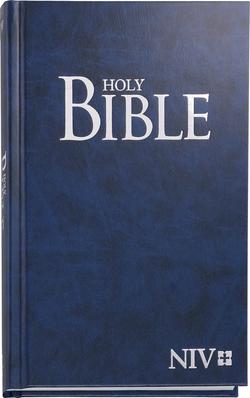
The New International Version (NIV) is a translation of the Bible in contemporary English. Published by Biblica, the complete NIV was released in 1978 with major revisions in 1984 and 2011. The NIV relies on recently published critical editions of the original Hebrew and Greek texts.

The Old Testament is the first division of the Christian biblical canon, which is based primarily upon the 24 books of the Hebrew Bible or Tanakh, a collection of ancient religious Hebrew writings by the Israelites. The second division of Christian Bibles is the New Testament, written in the Koine Greek language.

The Community of Christ, known from 1872 to 2001 as the Reorganized Church of Jesus Christ of Latter Day Saints (RLDS), is an American-based international church, and is the second-largest denomination in the Latter Day Saint movement. The church reports 250,000 members in 1,100 congregations in 59 countries. The church traces its origins to Joseph Smith's establishment of the Church of Christ on April 6, 1830. His eldest son Joseph Smith III formally accepted leadership of the church on April 6, 1860 in the aftermath of the 1844 death of Joseph Smith.
Frank Stagg was a Southern Baptist theologian, seminary professor, author, and pastor over a 50-year ministry career. He taught New Testament interpretation and Greek at New Orleans Baptist Theological Seminary from 1945 until 1964 and at the Southern Baptist Theological Seminary in Louisville, Kentucky from 1964 until 1978. His publications, recognitions and honors earned him distinction as one of the eminent theologians of the past century. Other eminent theologians have honored him as a "Teaching Prophet."
No one...has ever taken the New Testament more seriously than Frank Stagg, who spent his entire life wrestling with it, paying the price in sweat and hours in an unrelenting quest to hear the message expressed in a language no longer spoken and directed toward a cultural context so foreign to the modern reader.

The New Revised Standard Version (NRSV) is an English translation of the Bible published in 1989 by the National Council of Churches. The NRSV was intended as a translation to serve devotional, liturgical and scholarly needs of the broadest possible range of Christian religious adherents. At present, the New Revised Standard Version is the version most commonly preferred by biblical scholars; this is due to its basis on what are often considered the oldest and most reliable manuscripts, and its strict adherence to word-for-word translation. A major revision, the New Revised Standard Version Updated Edition (NRSVue), was released in 2021.
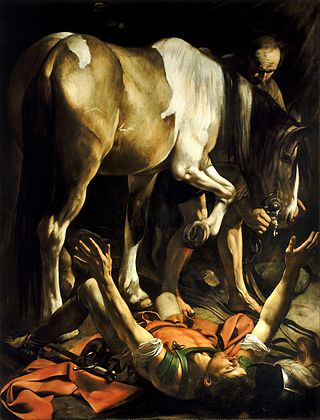
The Pauline epistles, also known as Epistles of Paul or Letters of Paul, are the thirteen books of the New Testament attributed to Paul the Apostle, although the authorship of some is in dispute. Among these epistles are some of the earliest extant Christian documents. They provide an insight into the beliefs and controversies of early Christianity. As part of the canon of the New Testament, they are foundational texts for both Christian theology and ethics.
Moore Theological College, otherwise known simply as Moore College, is the theological training seminary of the Diocese of Sydney in the Anglican Church of Australia. The president of the Moore Theological College Council is ex officio the Anglican Archbishop of Sydney.
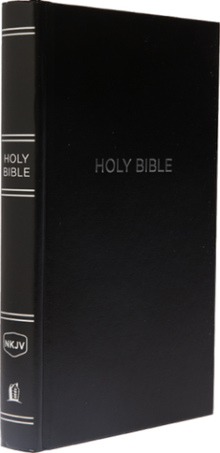
The New King James Version (NKJV) is a translation of the Bible in contemporary English. Published by Thomas Nelson, the complete NKJV was released in 1982. With regard to its textual basis, the NKJV relies on a recently published critical edition for the Old Testament, while opting to use the Textus Receptus for the New Testament.
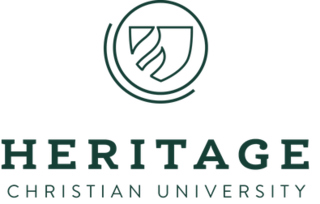
Heritage Christian University is a private bible college in Florence, Alabama. It is affiliated with the Churches of Christ. The university is governed by a Board of Directors, all of whom must be active members of the Churches of Christ.
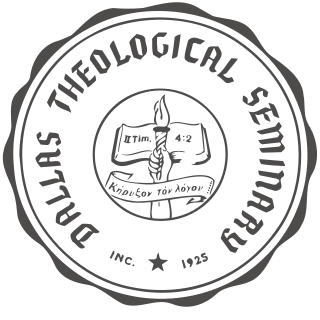
Dallas Theological Seminary(DTS) is an evangelical theological seminary in Dallas, Texas. It is known for popularizing the theological system dispensationalism. DTS has campuses in Dallas, Houston, and Washington, D.C., as well as extension campuses in Atlanta, Austin, San Antonio, Nashville, Northwest Arkansas, Europe, Guatemala, and Australasia and a multilingual online education program.

The Voice of Prophecy, founded in 1929 by H.M.S. Richards, Sr., is a Seventh-day Adventist religious radio ministry headquartered in Loveland, Colorado. Initially airing in 1929 on a single radio station in Los Angeles the Voice of Prophecy has since grown to numerous stations throughout the United States and Canada. It was one of the first religious programs in the United States to broadcast nationally. Under the leadership of Shawn and Jean Boonstra, the ministry has now expanded into additional forms of media, including the weekly Authentic broadcast and Discovery Mountain radio adventure series for kids. Additional projects include humanitarian efforts in countries such as India and Myanmar.

George Whitefield College is a Christian theological college in Muizenberg, Cape Town, South Africa.

Bibles for America (BfA) is a non-profit, religious organization dedicated to distributing free copies of the New Testament Recovery Version study Bible and Christian books by Witness Lee and Watchman Nee in the United States and Puerto Rico.

Boise Bible College (BBC) is a private Christian Bible college in Boise, Idaho.
The LDS edition of the Bible is a version of the Bible published by the Church of Jesus Christ of Latter-day Saints in English, Spanish, and Portuguese. The text of the LDS Church's English-language Bible is the King James Version, its Spanish-language Bible is a revised Reina-Valera translation, and its Portuguese-language edition is based on the Almeida translation. The editions include footnoting, indexing, and summaries that are consistent with the doctrines of the LDS Church and that integrate the Bible with the church's other canonized Latter-day Saint scriptures. The LDS Church encourages its members to use the LDS Church edition of the Bible.
Bible Lessons International (BLI) is a non-profit Bible study ministry and 501(c)(3) corporation based in Marshall, Texas. The ministry, according to information published on its website, "is dedicated to reaching the world for Jesus Christ with the goal of empowering God's people to interpret the Bible for themselves." Verse-by-verse, exegetical commentaries are offered entirely for free by the organization, which says its materials are "committed to the trustworthiness and authority of Scripture, emphasizing the intent of the original inspired authors by means of their historical setting, literary context, grammatical features, choice of words, genre and parallel passages."
Norman R. Ericson was an American teacher and Bible scholar.

Israel College of the Bible is a private Hebrew-speaking Messianic Bible college in Netanya, Israel. It is an independent academically accredited institution.
References
- ↑ "Bible Correspondence Course", Blessings To You Ministry, archived from the original on 2014-01-23
- ↑ "Bible Correspondence Courses", Plymouth Church, archived from the original on 2012-06-17, retrieved 2013-04-22
- ↑ "Free Bible Correspondence Courses", Lakeland Ledger - May 9, 2006
- ↑ "International Bible Teaching Ministries", Bible Correspondence Courses
- ↑ Votaw, Clyde W. (March 1906). "In the Popularization of Bible Study". The Biblical World. 27 (3). JSTOR 3140694.
- ↑ "The Enlarging Family: The Challenge of Theological Education in the CIS*" (PDF), Mission Focus Annual Review, archived from the original (PDF) on 2014-03-26
- ↑ "Bible Study Online or Correspondence Courses", Jordan Park
- ↑ "Bible Correspondence Courses", Institute for Prison Ministries, archived from the original on 2013-07-02
- ↑ "Bible Correspondence Courses", The Salvation Army USA, archived from the original on 2013-06-15, retrieved 2013-04-22
- 1 2 "Bible Correspondence Course", Blessings To You Ministry, archived from the original on 2014-01-23
- ↑ "Bible Correspondence Courses", Bible Study Center